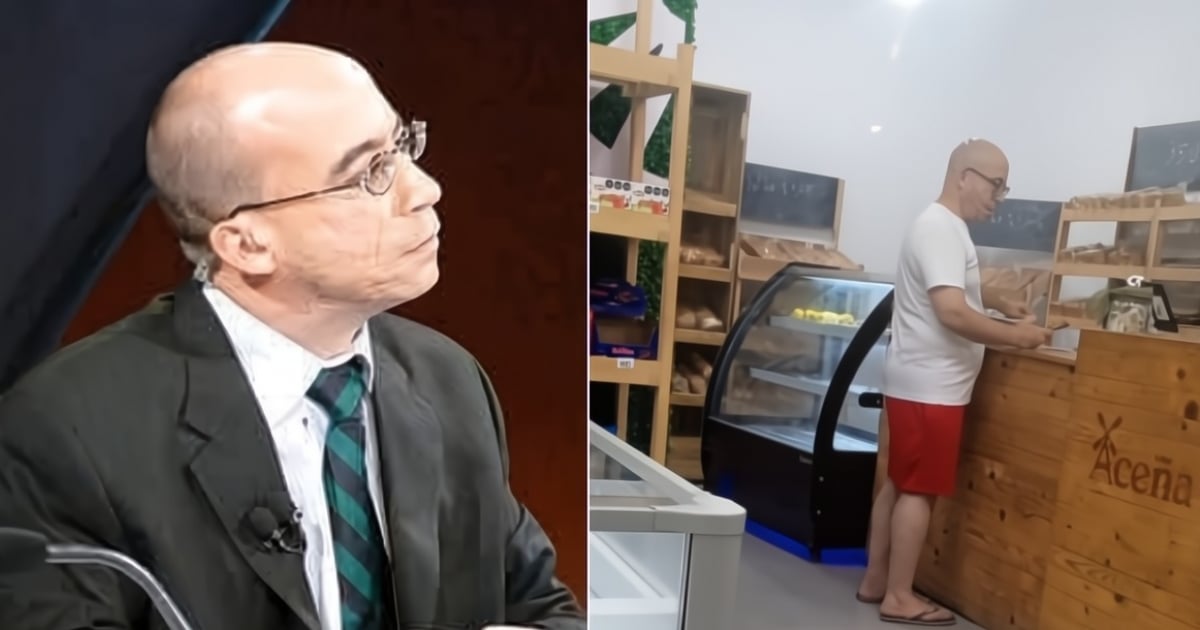On Father's Day, a post shared on social media sparked outrage by highlighting the dire food conditions faced by inmates at La Pendiente maximum security prison in Villa Clara. Meanwhile, figures aligned with the government, such as Randy Alonso, are seen purchasing bread from exclusive bakeries in Havana.
The post features a picture of two loaves of bread, which are not just any ordinary rolls. They are so poorly made that even those who are literally starving cannot consume them. "This is why I have this photo. Several inmates from La Pendiente prison in Villa Clara asked their families to take pictures of the bread and send them to me to denounce that they are being starved to death," stated the group "Las Taniadas" on Facebook.
The complaint also mentions other issues with the prison food, such as spoiled fish and semi-raw root vegetables served with their skins still on. "The goal is not just to torture the inmates but also to accumulate enough food scraps to feed the pigs that these beasts (prison officers) raise for their own benefit," the post adds.
The report also reminds readers that in this same prison, where the bread is inedible, elderly Zoila Esther Chávez Pérez was denied the chance to see her son one last time before he died.
In contrast, the post directly targets Randy Alonso Falcón, the host of the official Mesa Redonda program, who was photographed buying bread at the Aceña bakery located in the Playa municipality. This establishment operates 24 hours a day and is noted for having prices "unreachable for 99% of the Cuban population."
According to their website, Aceña sells wholesale with a minimum order of 100 units, and retail prices range from 35 pesos for a hamburger bun to 280 CUP for a rustic bread. "This chain belongs to El Cangrejo or Mariela Castro," claims the group, although they admit they cannot verify this information. However, they question how, in the current economic crisis, such businesses can be established and maintained without ties to the power structure.
While bakeries like Aceña offer gourmet products, the standard bread, which most people rely on, has decreased in size, increased in price, smells bad, and is often made with poor-quality flour. The "ration book bread" sometimes doesn't even reach Cuban households because the regime claims it lacks the resources to buy flour and sell the product to the public.
In a nation where salaries are insufficient to live on, and many people go hungry in prisons for holding political views contrary to the government, the presence of the official spokesperson in a private bakery has ignited anger. "That's how you can talk crap on Mesa Redonda and Cubadebate! Isn't that right, Randy Alonso Falcón?" the authors of the post, Zaida Artiaga, Anamely Ramos González, Jenni M Taboada, Tata Poet, and Tania Tasé, ask.
The images and statements have gone viral on social media, symbolizing the deep inequalities that Cuba faces under the communist regime.
Key Questions About Food Inequality in Cuban Prisons
What are the main issues with the food provided to inmates in Cuban prisons?
Inmates in Cuban prisons face food that is often inedible, including poorly made bread and spoiled fish. The food is sometimes served in a state that is unsafe for consumption, highlighting the severe neglect of basic nutritional needs.
Why has the purchase of gourmet bread by Randy Alonso caused public outrage?
Randy Alonso's purchase of gourmet bread has caused outrage because it highlights the disparity between the privileges enjoyed by government-aligned individuals and the dire conditions faced by the general population, including those in prisons.
What do posts on social media reveal about Cuba's current economic conditions?
Social media posts reveal significant economic hardships in Cuba, where most people struggle to afford basic necessities, and the government claims a lack of resources for essential supplies like flour, leading to widespread dissatisfaction.
